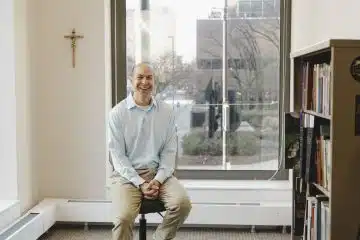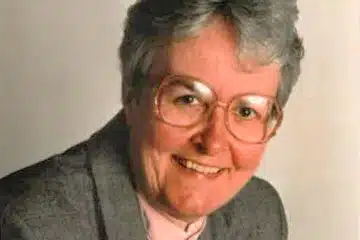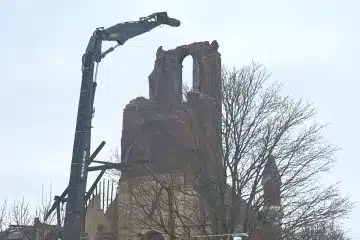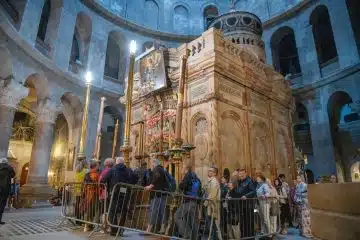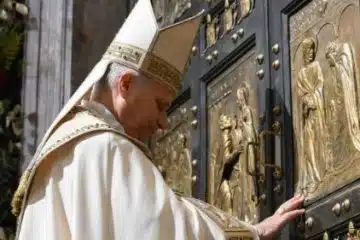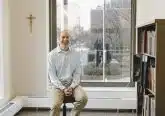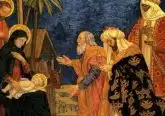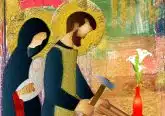Sunday Scripture: The empty tomb changed everything
By Father Timothy P. Schehr
Easter Sunday: Acts 10:34-43; Colossians 3:1-4; 1 Corinthians 5:6-8; John 20:1-9
Easter comes quietly in this Sunday’s Gospel. We hear the sound of footsteps running to the tomb, hearts beating wildly, gasps for breath. It is so very different from all the trumpets and alleluias we usually associate with this great day. On the other hand, its seems so appropriate that something so wonderful should be surrounded by silence. Words simply fail at the Lord’s great victory over death.
Peter and the Beloved Disciple make their way to the tomb, hearts pounding, feet moving across the ground as quickly as they can. When they arrive they see a stone rolled away, garments on the ground…some in a heap…one folded up. What do they make of it?
We know that John believes. But we can only guess at what he is thinking. Does he remember what Jesus said about rising on the third day and recognize that it must have happened. Does he understand what it means for him? That it opens up a whole range of meaning, transforming all he ever thought was really important?
Then there is Peter. What is he thinking? We are told only that he saw the garments on the ground. The last time we saw Peter in this fourth Gospel he had just finished denying any association with Jesus. But the empty tomb changes everything. The evidence is staring Peter in the face. What now? What possible response does he make the Lord he denied? Little wonder Peter falls way behind the Beloved Disciple. Not because of age, but because he needs time to think. He needs time to prepare.
Peter was not given the opportunity to reconcile with the Lord in this Gospel scene. That will come in the next chapter. At this point Peter simply returns home with the Beloved Disciple. The gospel reminds us that as yet neither of them understood the Scripture that Jesus had to rise from the dead. But the day will come when they will understand that God’s word in Scripture anticipated in so many ways the victory of Jesus over sin and death.
We know the rest of Peter’s life story. We see Peter standing tall and full of confidence in the first reading. It is the feast of Pentecost and Peter, now filled with the Holy Spirit, addresses the crowds in Jerusalem who came for the feast. Peter is thrilled to have been a witness for Jesus and “all that he did both in the country of the Jews and in Jerusalem.” This same Jesus, Peter declares, was put to death by hanging on a tree. But that is not the end. Not for Jesus Christ. Peter boldly declares that he and chosen others were also witnesses to the Risen Lord. They ate and drank with Him after He rose from the dead. But there is still more good news for the crowds. Peter also announces that all who believe in Jesus will receive forgiveness of their sins. A new day has dawned, and Peter wants his audience to take full advantage of it.
In his Letter to the Colossians, Paul points up the remarkable transformation that the Christian way of life should make in people. They have been raised with Christ; they should seek what is above. The old self is dead. Now they live in Christ. And when the Lord comes at the end of time they will appear with Christ in glory.
In his Letter to the church in Corinth, Paul again talks about the old and the new. “Malice and wickedness” he says are the old yeast that once influenced their thoughts and actions. But now they have become “a fresh batch of dough.” This new bread is permeated with sincerity and truth.
Father Schehr is a faculty member at the Athenaeum of Ohio.





